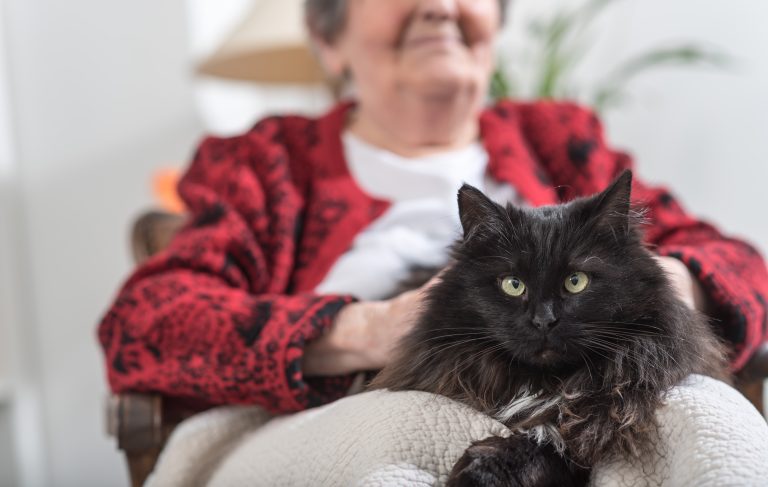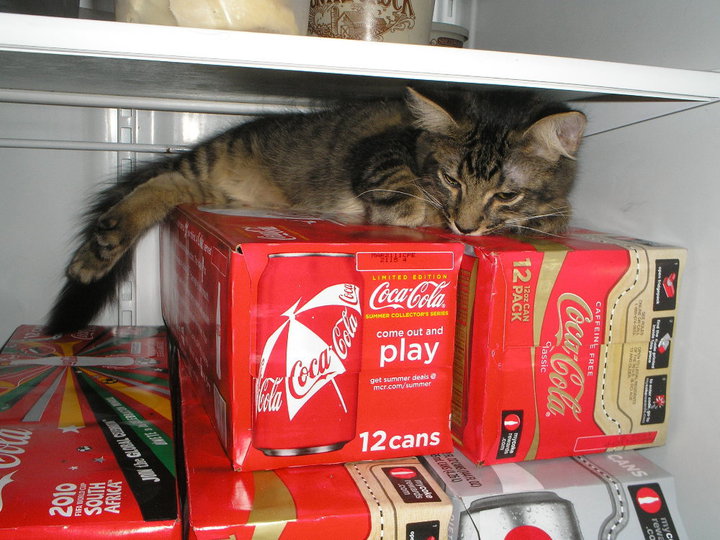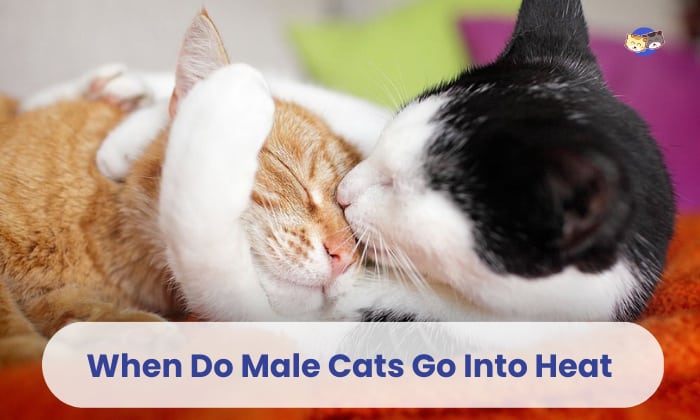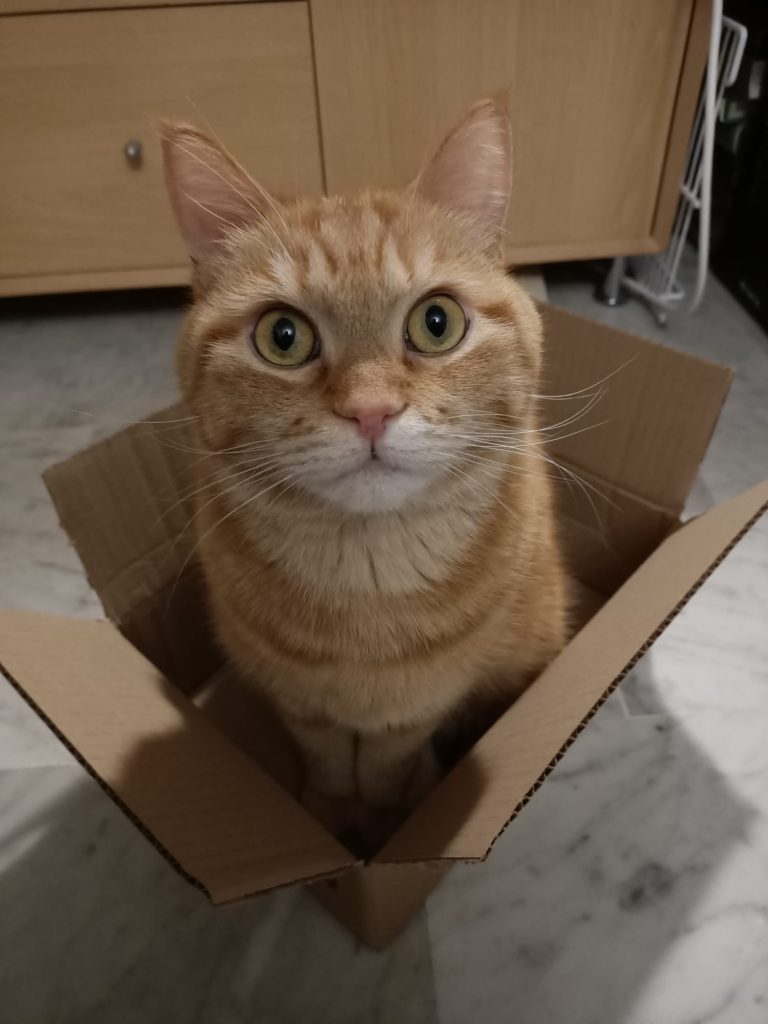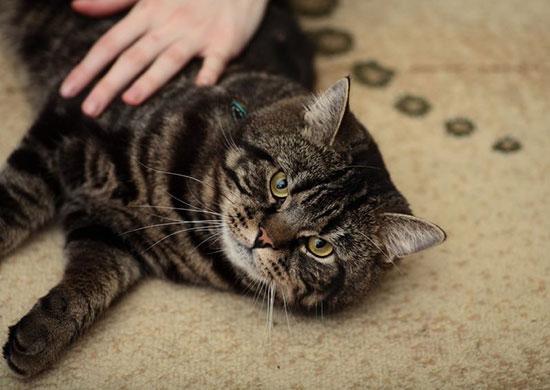Why Does My Cat’s Poop Smell So Bad?
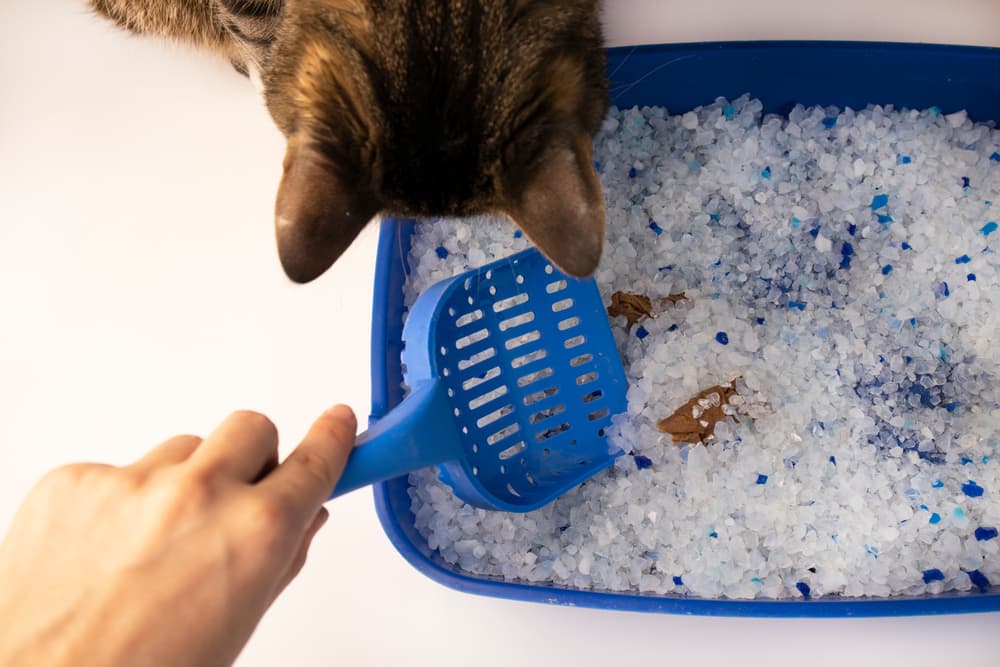
Your cat’s poop smells bad due to the presence of certain bacteria and the breakdown of proteins in their diet. This can lead to a strong odor that is unpleasant to humans.
Cats are beloved companions, providing us with love, laughter, and the occasional scratch. However, one aspect of cat ownership that can be less delightful is dealing with the pungent odor of their poop. Ever wondered why your cat’s poop smells so bad?
Don’t worry, you’re not alone. This article will delve into the reasons behind the foul smell emanating from your feline friend’s litter box. Understanding the factors contributing to this unpleasant odor can help you maintain your cat’s health and hygiene. So, let’s get to the bottom of this stinky issue and unravel the mysteries of why your cat’s poop can sometimes clear a room.

Credit: welovecatsandkittens.com
10 Reasons Why Your Cat’s Poop Smell So Stinky
If you are a cat owner, you may have wondered why your furry friend’s poop cn sometimes have an overpowering stench. While it’s normal for cat poop to have a certain odor, there are various factors that can contribute to an unusually foul smell. In this article, we will explore the top 10 reasons why your cat’s poop may smell so stinky. By understanding these potential causes, you can take appropriate steps to address the issue and ensure your cat’s digestive health is in check.
1. Changing Diet Suddenly
One possible reason for your cat’s stinky poop is a sudden change in diet. Cats have sensitive digestive systems, and introducing new foods without a gradual transition can disrupt their gut flora. This disruption can lead to changes in the odor of their stool. If you’ve recently changed your cat’s diet, consider switching back to their previous food or gradually introducing the new food over a week or so.
2. Bacterial Infection
A bacterial infection in your cat’s digestive system can also be a cause of foul-smelling poop. Bacteria such as Salmonella or E. coli can lead to diarrhea and a strong odor. If you suspect your cat has a bacterial infection, it’s important to seek veterinary attention for a proper diagnosis and treatment.
3. Problems With Digestion
Issues with digestion can cause changes in the smell of your cat’s poop. Digestive problems such as malabsorption, pancreatic insufficiency, or inflammatory bowel disease can alter the composition of the stool, resulting in a stronger odor. If you notice consistent changes in your cat’s poop smell, it’s best to consult with your vet to explore potential digestive issues.
4. Food Allergies
Cats can develop food allergies or sensitivities, which can manifest as digestive problems and smelly stool. Common food allergens for cats include beef, dairy, fish, and grains. If you suspect your cat has a food allergy, your vet may recommend an elimination diet to identify the specific allergen and recommend suitable dietary changes.
5. Hormonal Changes And Medications
Hormonal changes or medications can also impact the odor of your cat’s poop. Certain medications, such as antibiotics, can disrupt the balance of bacteria in the gut, leading to a stronger smell. Similarly, hormonal changes, such as those that occur during pregnancy or heat cycles, can affect digestion and result in altered stool odor.
6. Infections Of The Anal Glands
Infections in your cat’s anal glands can contribute to a foul odor in their poop. The anal glands are small sacs located near their anus and can become infected or impacted, leading to discomfort and an unpleasant smell. If your cat is displaying signs of discomfort or has a persistent foul odor, consult with your vet to address any potential anal gland issues.
7. Parasites
Parasites, such as worms or protozoa, can also cause smelly poop in cats. These parasites can disturb the normal functioning of the gastrointestinal tract and lead to diarrhea and a strong odor. Regular deworming and preventive measures can help prevent parasite infestations and maintain your cat’s digestive health.
8. Not Picking Up After Themselves Or Pooping Outside The Litter Box
If your cat is not consistently using their litter box or if their waste is left unattended for long periods, it can result in a more noticeable odor. Cleaning the litter box regularly and ensuring your cat has a comfortable and accessible space for eliminating can help minimize the smell.
9. Bleeding In The Intestines
Bleeding in the intestines can contribute to a strong-smelling stool. This can occur due to various reasons, such as infections, parasites, or inflammation. If you notice blood in your cat’s poop or a persistent strong odor, it’s crucial to consult with your vet for a proper diagnosis and appropriate treatment.
10. Foods High In Protein
Foods that are high in protein can lead to a stronger-smelling feces in cats. This is because the breakdown of proteins produces more pungent compounds during digestion. While it’s important to offer your cat a balanced diet, including protein-rich foods, excessive protein intake can result in a more potent odor.
11. Type Of Litter
The type of litter you use for your cat’s litter box can also impact the smell of their poop. Some litter materials may not effectively absorb odors, leading to a stronger stench. Consider experimenting with different litter options to find one that works best for controlling the odor of your cat’s waste.
12. Stress
Stress can have a significant impact on your cat’s digestive system, potentially leading to changes in stool odor. Cats are sensitive creatures, and environmental changes or emotional stressors can affect their overall well-being. Creating a calm and comfortable environment for your cat and addressing any potential stressors can help regulate their digestion and minimize strong-smelling poop.
How To Prevent Your House From Smelling Of Cat Poop?
Now we will explore why cats’ poop can sometimes have a strong odor and provide effective solutions to prevent your house from smelling like cat poop. By implementing these tips, you can create a fresh and odor-free environment for both you and your feline friend.
1: Use Air Fresheners
Cat poop odor can be overpowering, and using air fresheners can help neutralize the smell in your home. While air fresheners provide a temporary solution, it is important to use products that are safe for cats as some scents may be harmful. Look for cat-friendly air fresheners that contain natural ingredients and avoid those with harsh chemicals.
2: Modify Or Improve The Litter Box
The litter box plays a crucial role in containing and managing the odor of cat poop. Making modifications or improvements to the litter box can greatly reduce the smell. Consider the following suggestions:
- Use clumping litter: Clumping litter forms firm clumps when wet, making it easier to remove soiled litter and trap odors.
- Choose a covered litter box: A covered litter box helps contain odors and provides privacy for your cat.
- Keep the litter box clean: Scoop the litter box daily to remove any waste promptly. Empty and clean the litter box regularly to prevent odor buildup.
3: Grooming
Grooming your cat not only keeps their coat clean but can also help reduce the smell of cat poop. Regular brushing helps remove loose hair and prevent it from being ingested during grooming, which can contribute to foul-smelling feces. Additionally, grooming can prevent matting and reduce the chance of feces getting stuck in long fur, further reducing odor.
4: Vacuum Your House
Even with clean litter boxes, dander, loose fur, and particles from cat poop can still linger in your home and contribute to an unpleasant smell. Vacuuming your house regularly can help eliminate these particles and keep your home smelling fresh. Make sure to pay extra attention to areas where your cat spends the most time, such as their bedding or favorite lounging spots.
5: Clean The Air
To ensure your house smells fresh and clean, consider using air purifiers or placing odor-absorbing products throughout your home. Air purifiers help filter out odors and allergens, improving the air quality. Additionally, you can strategically place odor-absorbing products such as baking soda or activated charcoal near litter boxes or areas with lingering smells.
How To Remedy Your Cat’s Poop From Smelling Really Bad?
If you’ve noticed that your cat’s poop is emitting an unpleasant odor, you’ll want to take steps to remedy the situation. A foul-smelling litter box can not only be unpleasant for you but may also indicate an underlying health issue affecting your feline friend. Here are some effective ways to tackle the problem and help your cat’s poop smell less offensive.
1. Changing The Diet
A major factor contributing to smelly cat poop is diet. Just like humans, your cat’s diet plays a significant role in the odors produced during digestion. To improve the smell of your cat’s poop, consider making some changes to their diet:
- Ensure your cat is receiving a balanced and high-quality diet rich in essential nutrients, such as protein and fiber.
- Consult with your veterinarian about potential dietary adjustments that may help reduce odor, such as switching to a different cat food brand or incorporating fresh foods into their meals.
- Introduce more moisture into your cat’s diet by feeding wet cat food or offering a water fountain to encourage hydration.
Making gradual changes to your cat’s diet will not only help improve the smell of their poop but also promote overall digestive health.
2. Probiotics
Probiotics are beneficial bacteria that can support a healthy gut in cats. Adding probiotics to your cat’s diet can help improve digestion and reduce the odor of their poop. Consider these steps:
- Choose a high-quality probiotic specifically formulated for cats, preferably in a powder or capsule form.
- Follow the recommended dosage instructions provided by the product manufacturer or consult your veterinarian for guidance.
- Gradually introduce the probiotic into your cat’s daily routine, mixing it with their wet food or sprinkling it over their regular meals.
By incorporating probiotics into your cat’s routine, you can help restore the balance of bacteria in their digestive system and minimize the odor of their poop.
3. Flea Preventative
Fleas not only cause discomfort for your cat but can also contribute to smelly poop. Flea infestations can lead to tapeworm infections, which can alter your cat’s digestive health. Here’s how you can prevent fleas:
- Use a veterinarian-recommended flea preventative treatment to keep fleas at bay and reduce the risk of tapeworm infections.
- Regularly check your cat’s fur for fleas and use flea combs for early detection and removal.
- Keep your home and surroundings clean, vacuuming regularly and washing bedding to minimize flea populations.
By preventing flea infestations and treating your cat promptly, you can help maintain their digestive health and reduce the smell of their poop.
4. Medications
In some cases, the foul smell of your cat’s poop may be due to an underlying medical condition. If the odor persists despite changes in diet and preventive measures, it’s crucial to consult your veterinarian. They may recommend certain medications or treatments to address the issue:
- In cases where bacterial or parasitic infections are the cause, your veterinarian may prescribe antibiotics or antiparasitic medications.
- If your cat has a chronic medical condition affecting their digestive system, such as inflammatory bowel disease (IBD), your veterinarian may prescribe medications to manage symptoms and improve digestion.
Proper diagnosis and treatment from a veterinarian can help resolve any underlying medical issues and alleviate the smelly poop problem.
5. Reduce Stress
Stress can have a significant impact on your cat’s digestive system, leading to smelly poop. To help your cat manage stress and improve their digestive health, consider the following:
- Create a calm and comfortable environment for your cat, providing them with a quiet space for relaxation.
- Ensure your cat has access to toys and activities that stimulate mental and physical exercise, helping to reduce stress.
- Introduce calming measures, such as Feliway diffusers or supplements recommended by your veterinarian.
Reducing stress can positively impact your cat’s overall well-being and help minimize the odor of their poop.
By implementing these strategies and seeking appropriate veterinary care, you can tackle the issue of smelly cat poop and ensure your feline companion enjoys optimal digestive health.
Frequently Asked Questions For Why Does My Cat’s Poop Smell So Bad?
How Do I Stop My Cats Poop From Smelling So Bad?
To reduce the smell of your cat’s poop: 1. Clean the litter box daily. 2. Use high-quality, odor-absorbing litter. 3. Provide proper ventilation in the litter area. 4. Feed your cat a balanced diet. 5. Consult a veterinarian to rule out any health issues.
Is It Normal For Cat Poop To Smell Really Bad?
Yes, it is normal for cat poop to have a strong smell. Cats’ digestive systems break down protein, and this can produce a strong odor in their waste. Keep plenty of fresh litter and clean the litter box regularly to help manage the smell.
Why Does My Kitten Have Stinky Poop?
Kittens can have stinky poop due to various reasons like diet changes, parasites, or intestinal infections.
Does Wet Food Make Cat Poop Smell Worse?
Wet cat food can make poop smell worse due to its higher moisture content.
Conclusion
To sum it up, the foul odor emanating from your cat’s poop can be attributed to various factors. Factors such as their diet, digestive issues, or underlying health conditions can contribute to the unpleasant smell. It is important to monitor your cat’s diet, provide proper hydration, and seek veterinary advice if the odor persists or is accompanied by other symptoms.
Keeping a clean litter box and practicing good hygiene can also help minimize the smell. Remember, understanding the reasons behind the bad odor is crucial for maintaining your cat’s overall health and wellness.

